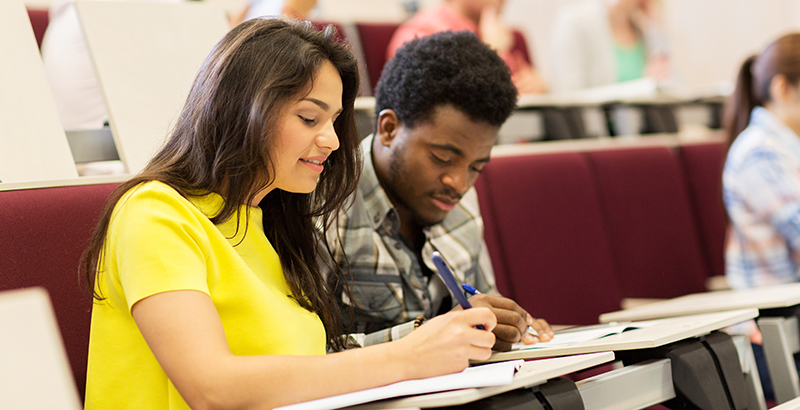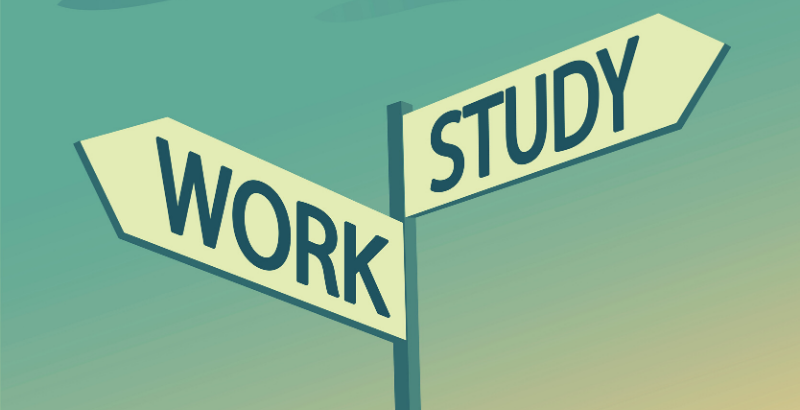The 13 Best Education Articles from April: How States Are Planning to Reverse COVID Slide, Innovative Strategies For Building a More Diverse Teacher Workforce & More
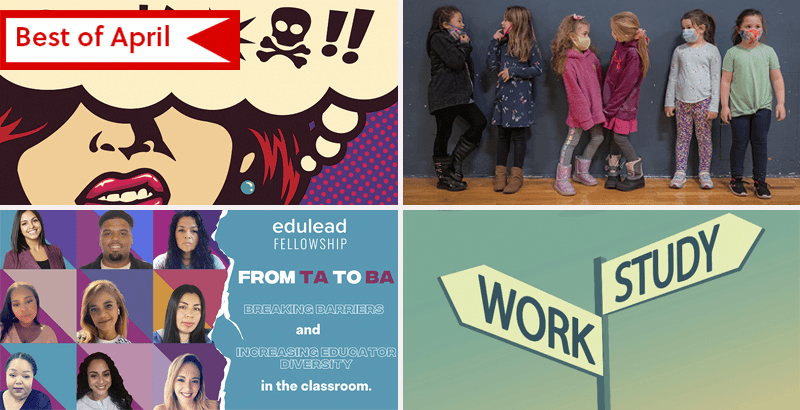
Every month, we round up our most popular and shared articles from the past four weeks. (Go deeper: See our top highlights from March, February and January right here)
Showdowns over reopening schools, racial reckonings playing out in Minnesota and Connecticut, ambitious state proposals to reverse COVID learning loss — these were just a few of the exclusives and storylines that resonated most passionately with our readers in April. And as the national media was focused on the trial of Derek Chauvin, convicted of murdering George Floyd, we also surfaced disturbing statistics from nearby schools that showed the widespread use of restraint on school campuses, disproportionately against Black students.
From school discipline to accelerating learning to strategies for both educators and families in bridging the home-classroom gap in a time of remote instruction, the month saw a wide mix of news, analysis and investigations at The 74. Below are our most popular articles of the month. (Reminder: You can also get alerts about our latest news coverage, essays and exclusives by signing up for The 74 Newsletter)

Social-Emotional Learning or ‘White Supremacy with a Hug’? Yale Official’s Departure Sparks a Racial Reckoning
SEL: For seven years, Dena Simmons drove efforts to make the Yale Center for Emotional Intelligence’s popular social-emotional learning program, RULER, more culturally relevant for students with life experiences like hers — a Black girl from the Bronx. Her message resonated with educators across the country in districts struggling with the racial mismatch between teachers and students. “Dena’s star was certainly on the rise … because she brought a perspective in content that was transformational,” Andre Perry of the Brookings Institution told reporter Linda Jacobson. But Marc Brackett, the Yale center’s director and a well-known guru on the role of emotions in learning, saw things differently. Emails shared with The 74 and interviews with Simmons and other former staff members at the center show Brackett balked at efforts to include political figures, such as former President Barack Obama, and current texts, such as a book about a transgender boy, into RULER’s lessons. Such approaches, Brackett warned, could get the program “banned.” Simmons’s frustrations peaked last summer, when she became the target of racial slurs during an online event meant to foster racial healing, and she resigned in January. The clash at the Yale center — and the response to her departure — tell a larger story about what some see as a pressing need to address historical discrimination and others criticize as efforts to politicize the SEL curriculum. As one leader in the world of social-emotional learning said, “There is a measure of urgency that was not present two years ago.” Read the full story.
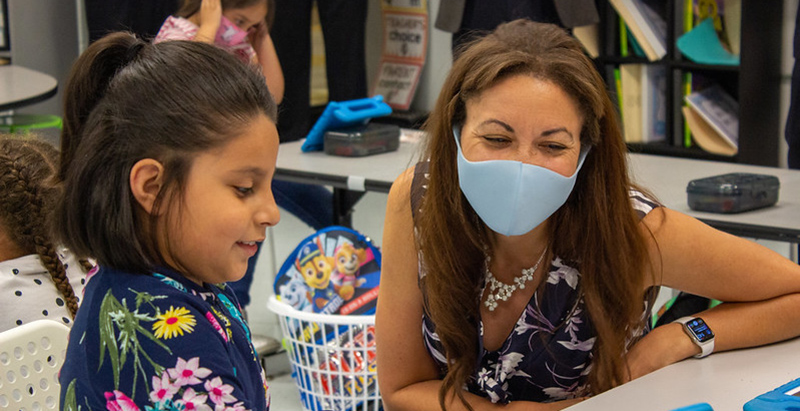
States Target Learning Loss with Summer School and Extended Days, but Some Parents Want Option to Hold Kids Back
Accelerating Learning: Whether they’re using state funds or waiting on their portion of the latest federal relief bill, state lawmakers have made learning recovery for students a high priority in this year’s legislative sessions. While many plan to take advantage of the summer to address learning loss for students most affected by school closures, some proposals allow for additional hours to the school day — which could be easier for teachers to support after a tough year of remote and hybrid learning. “Many teachers have been working harder than ever this year and will need the summer to recharge,” Michelle Cunningham, executive director of the Connecticut After School Network, told reporter Linda Jacobson. One question is whether large numbers of students will need to repeat a grade, even if they receive additional academic support. A few state bills would ensure parents have the option of asking that their children be retained, and Tennessee has already passed a third-grade retention law. But Gini Pupo-Walker of Education Trust-Tennessee said, “Is it too heavy of a hammer? The first cohort we would potentially retain would have spent first grade and part of kindergarten in a pandemic.” Read the full story.
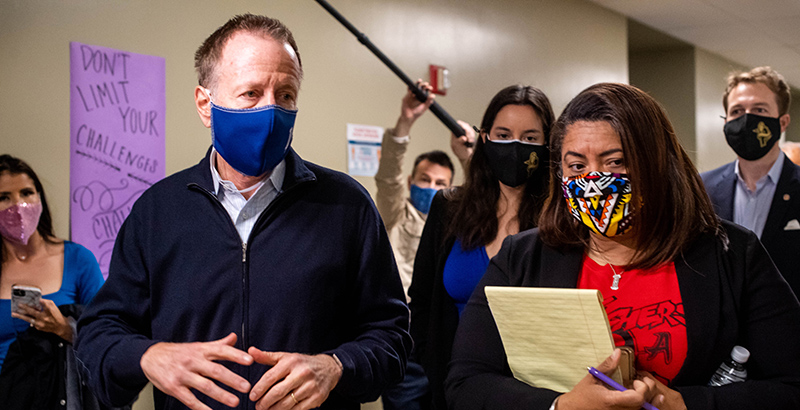
Court Documents Reveal How L.A. Teachers Union Gained Upper Hand in Pandemic Negotiations, Limiting Instruction Time
School Reopening: As the Los Angeles Unified School District prepares to reopen elementary schools for the first time in 13 months, recently released court documents provide a rare glimpse into negotiations last summer between the district and United Teachers Los Angeles. The district’s labor chief pushed to improve on last spring’s four-hour schedule for teachers, telling the union’s team he wanted “to see the workday mirror or parallel a regular workday,” which had been eight hours pre-COVID, and that the district “can’t shortchange the students.” But between mid-July and December, the union won on that and several more points, ultimately securing, on average, a six-hour day. The district’s relatively weak position in Los Angeles is a contrast to Chicago and New York, where mayors control the schools, the University of Nevada Las Vegas’s Bradley Marianno told reporter Linda Jacobson. Parents largely supported Los Angeles teachers two years ago when they went on strike, but “now we’re talking about actual disruption to school for a long period of time,” he said. “Parents have an ability to separate their beliefs about teachers from their beliefs about teachers unions.” Read the full story.
George Floyd Isn’t Alone — Thousands of MN Students Are Restrained at School Each Year
Student Discipline: In the closely watched murder trial of Derek Chauvin, the former Minneapolis police officer’s use of physical restraint has been the subject of disturbing testimony and dispute among medical experts. Now, the brutal manner of George Floyd’s death is highlighting how common the practice of restraining children with similar techniques remains in Minnesota schools — and in districts across the country. Though state policymakers have worked for years to reduce the prevalence of “physical holds” in Minnesota schools — including a 2015 ban on the face-to-the-ground “prone restraint” used against Floyd — educators employ the tactic thousands of times each year to subdue students, state and federal data show. Such restraints often come with devastating consequences for children, including injury and, in rare cases, death. Pending state and federal legislation would place new restrictions on student restraints, including a Minnesota provision that would explicitly prohibit school-based police from placing children in a prone restraint, a change officials said was a direct response to Floyd’s death. But the laws would be effective only if educators followed them, Lauren Morando Rhim, co-founder and executive director of The Center for Learner Equity, told The 74’s Mark Keierleber. “There have to be consequences [for those who don’t]. We cannot have systems that keep reinforcing that it is OK to kill Black people.” Read the full story.
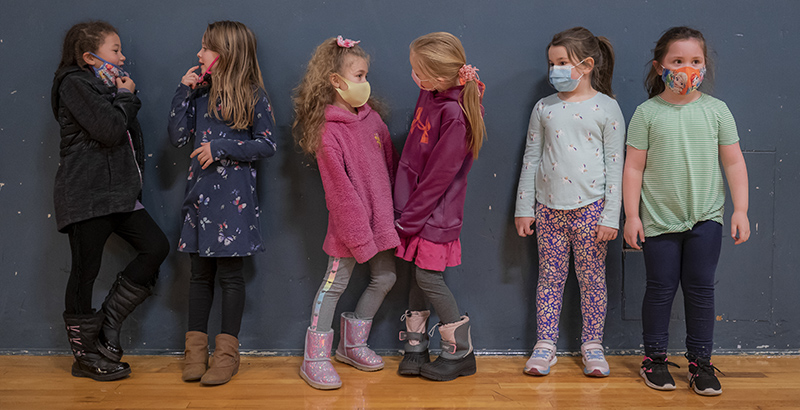
One Texas Town, Two School Districts, Clashing Mask Policies: How Science and Politics Collided in New Braunfels’ Classrooms
School Safety: In what quickly became a conversation about science, personal liberty, and the role of government, New Braunfels’ two school boards, New Braunfels ISD and Comal ISD, landed on opposite sides of the face-covering debate last month after Gov. Greg Abbott announced the statewide mask mandate would end March 10. While New Braunfels ISD surveyed parents and teachers, ultimately keeping the mandate, Comal’s board voted to give parents and staff the choice. Comal trustees used political ideology, not science, to guide their decision, parents say, putting schools in an impossible position. “You feel as a teacher you can’t do what you need to do to protect the kids,” said Kate Fraser, a Comal ISD parent and teacher. Bekah McNeel has the story of how a town best known for spring-fed rivers and dance halls, became embroiled in the national debate over mask wearing and the safety of children and teachers. Read the full story.
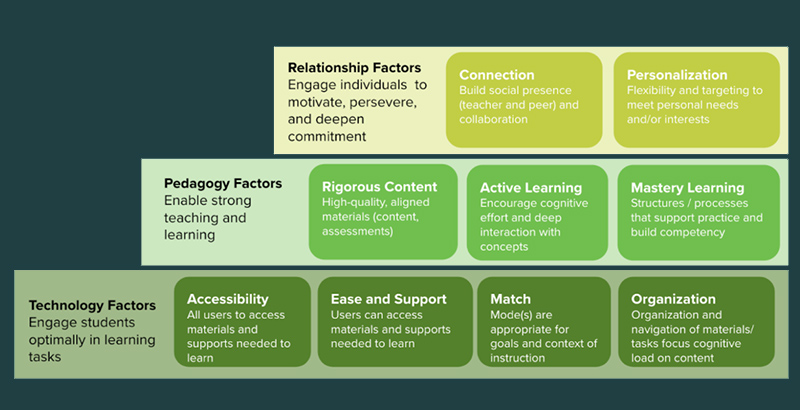
Rabbitt: Teaching Students in Person and Online at the Same Time Is a Huge Challenge. 4 Ways to Bridge the Home-Classroom Gap
Blended Learning: Many schools are using a simultaneous learning approach, where teachers work with all students, both in person and online, at the same time. However, writes contributor Beth Rabbitt, despite hard work and good intentions, full-time, simultaneous learning is not a best practice. Online models are least effective when teachers try to engage learners from a distance while managing an in-person classroom, and they pose a challenge of epic proportions for educators. There are ways of managing hybrid schooling so that rarely will two cohorts working across contexts (distance and non) engage for an entire day — or even an entire lesson — at the same time. Yet, right now, that’s the model many schools employ, and having at least some learners participate remotely in a concurrent manner, online and in-person, will likely be part of the solution for the near future for a few important reasons. So how can we make simultaneous learning work better for more teachers and students? Here are four big takeaways for thinking about how to better bridge the home-classroom engagement gap. Read the full analysis.
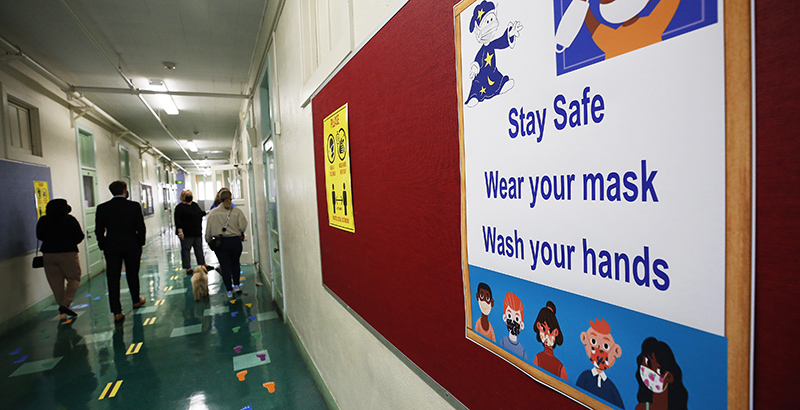
Report: Learning Loss Data Shows 40,000 Los Angeles High School Students Off Track to Graduate
Learning Loss: As the Los Angeles Unified School District was preparing to reopen schools, a new analysis of district data revealed 40,000 high school students were at risk of not graduating — including 6,000 this year. In middle school, about a third of students in the district are currently on grade level in reading and math. Some of the worst learning loss was found in the early grades, where reading skills declined the most in kindergarten and first grade compared with the 2019-20 school year. “I am hopeful about the reopening of Los Angeles schools, but we cannot simply pick up where we left off. Reopening alone does not address the recovery needed,” Ana Ponce of advocacy group Great Public Schools Now, which published the report, wrote in the introduction. The authors recommend the district expand community partnerships, especially to get more students connected to the internet. The school board has made connectivity a priority as well, directing Superintendent Austin Beutner to spend $5 million to address remaining obstacles. Read Linda Jacobson’s full report.
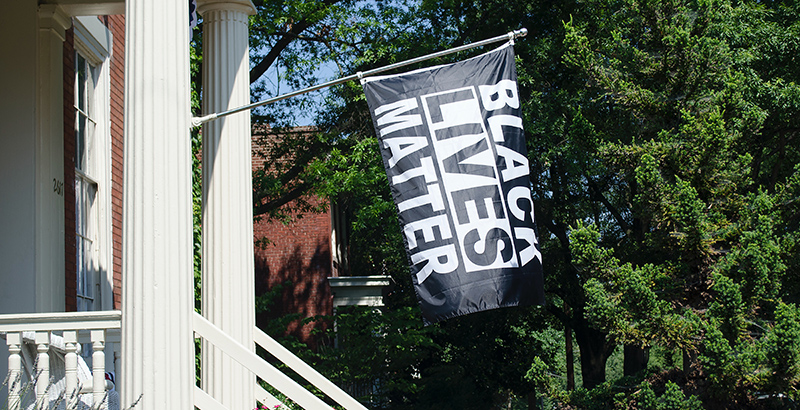
White Parents Horrified by George Floyd Video Still Go to Great Lengths to Keep Their Children in Segregated Schools
Commentary: A recent Brookings Institution report analyzed more than 400,000 messages on a popular, upscale discussion forum called “DC Urban Moms and Dads.” It confirmed what 74 contributor Conor Williams, himself a D.C. dad, suspected: Affluent white parents in this progressive city where Black Lives Matter signs are “nearly as common as street signs” spend an enormous amount of time and money making sure their kids get into the most well-off, least racially diverse schools. Such maneuvering seems so expected, Williams said, that most white parents wouldn’t consider their actions as perpetuating the same race-driven policies that created intergenerational wealth gaps and segregated wide swaths of society. It’s much easier to decry police brutality caught on video than to reckon with systemic racism closer to home. “And thus, white supremacy will persist and continue threatening Black lives until white Americans actually turn and confront the perniciously hidden systems that keep us from including Black Americans in our daily lives.” Read the full essay.
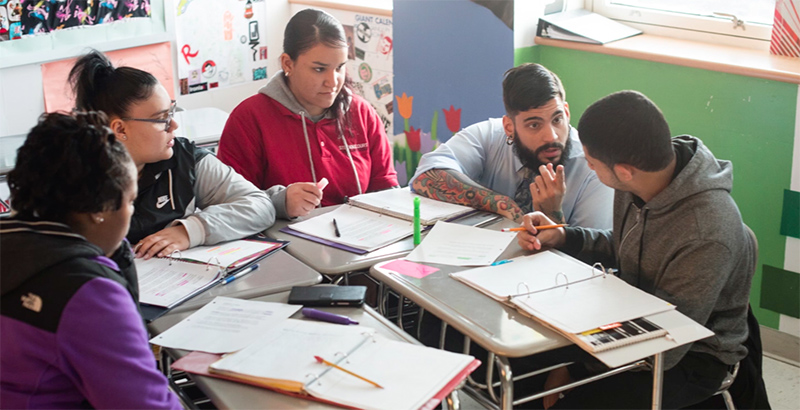
‘Doomed’ By 8th Grade: Underserved Students Thrive In College, But Disparities In Access Start Early & Persist Insidiously, New Report Reveals
Higher Education: Data have shown that stark racial and socioeconomic gaps characterize which students tend to make it not just to, but through, college. However, a new report on five New England school districts provides an alternate narrative: Underserved students thrive in four-year colleges at rates similar to their white peers, but wide disparities in enrollment persist. “The real gap is in who gets to go to those schools, not in whether they can succeed once they get there,” Elina Alayeva, a co-author of the study, told The 74’s Asher Lehrer-Small. The report reveals that as early as eighth grade, key red flags predict which students are on a pathway toward college success, but that few schools effectively track those measures or intervene. Hartford, Connecticut, however, is bucking the trend. A participating district in the study, the school system is revamping its high school experience to emphasize student-staff relationships so students have built-in support if they begin to slip. “It just takes a shift in adult mindsets,” said Alayeva. Read the full story.
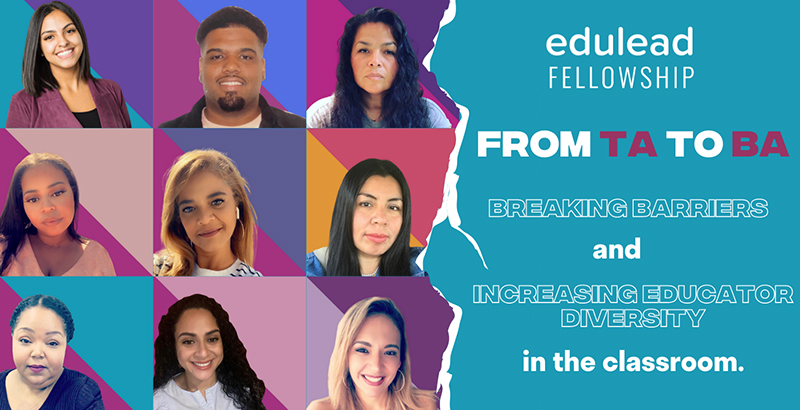
Inside the ‘TA to BA’ Educator Fellowship: How One Rhode Island Initiative Is Elevating Experienced Paraprofessionals — and Creating a More Diverse Teacher Force
Teacher Diversity: Rhode Island, like much of the nation, faces a problem: Its teaching workforce does not represent its students. Statewide, 89 percent of educators are white while over 4 in 10 students are kids of color, a figure that jumps above 9 in 10 for some districts. The Providence-based Equity Institute, however, has delivered an answer, long hiding in plain sight: teaching assistants. High shares of paraprofessionals in the state are people of color, many of whom speak Spanish and have deep classroom experience. Last year, the nonprofit created the “TA to BA” fellowship, which forges a pathway for teaching assistants to transform that experience into bachelor’s degrees and teaching certifications. “They’re incredible educators,” said Christine Alves, a professor for the cohort. “But they don’t see a clear pathway to become a teacher.” Now, nearly a full school year into the program, with rave reviews from the inaugural class, all of whom are on a path toward graduation, and with over 60 applications already for next year, early signs show their effort is working. Asher Lehrer-Small has the story.
How a Snapchat Post Laden with F-Bombs and Teen Angst Could Give Schools Broad Power Over Students’ Off-Campus Speech — And Why Young Leaders Are Fighting Back
Supreme Court: In a major case that could grant educators the power to regulate student speech far beyond the schoolhouse gate, the Supreme Court will hear oral arguments centered on a high school cheerleader’s profanity-laden social media post. The Snapchat post, filled with F-bombs and teen angst, could carry far-reaching implications: Education groups and the Biden administration have urged the justices to cement educators’ authority to regulate students’ off-campus speech in the name of safety, but a coalition of student activists — including a group born out of the mass school shooting in Parkland, Florida — are fighting back. Nearly 200 current and former student school board members from 28 states and territories filed an amicus brief defending the cheerleader and urging the justices to protect young people’s free-speech rights. “I’d consider it the student voice case of the century because it determines if students can speak our minds off campus and if our First Amendment right is protected,” said Athena Haq, a 15-year-old sophomore from Houston. Read more by The 74’s Mark Keierleber.
Project-Based Learning or Lectures? Our Research Shows PBL Helps Low-Income Students Do Better in AP Classes, Earn College Credit
Analysis: Because only scores of 3 or higher out of 5 on Advanced Placement exams can translate into college credit, schools often worry that without lectures and textbooks, teachers won’t be able to cover the breadth of the curriculum and students won’t be prepared for the high-stakes tests. This approach to instruction is a missed opportunity, write contributors Anna Rosefsky Saavedra and Amie Rapaport. They recently conducted the first-ever randomized controlled trial evaluation of project-based learning in an AP setting, compared to business-as-usual lectures, in five of the nation’s largest, predominantly urban school districts, four of which have a majority of Black and Hispanic students and three of which serve a majority of students from low-income households. The result: More AP U.S. Government and AP Environmental Science students would be eligible to earn college credit using PBL than a regular AP classroom approach. Students and teachers liked the change, and based on the researchers’ results, the College Board will offer a virtual PBL professional learning program for teachers starting this summer. “With support for improving upon inequitable educational practices a top priority nationwide, PBL might be a key strategy post-pandemic, particularly for those students who have overcome the most.” Read the full analysis.
Nearly Half of American Parents Rethinking Value of Four-Year College; Want Additional Alternatives for Children
Poll: A new national survey reveals that nearly half of American parents are questioning the value of four years of college, preferring alternatives such as enrolling in vocational education, joining the military or starting a business. Gallup and Carnegie Corporation of New York partnered to ask 3,000 parents what they see as an ideal pathway for their children, hoping “policymakers and education leaders use its findings to build a cradle-to-career education system that prepares all our nation’s young people for the bright futures they deserve.” The 74’s Meghan Gallagher breaks down the report’s striking trends and why parents are reaching for skills-training programs for their children. Read the full story.
Get stories like these delivered straight to your inbox. Sign up for The 74 Newsletter

;)


